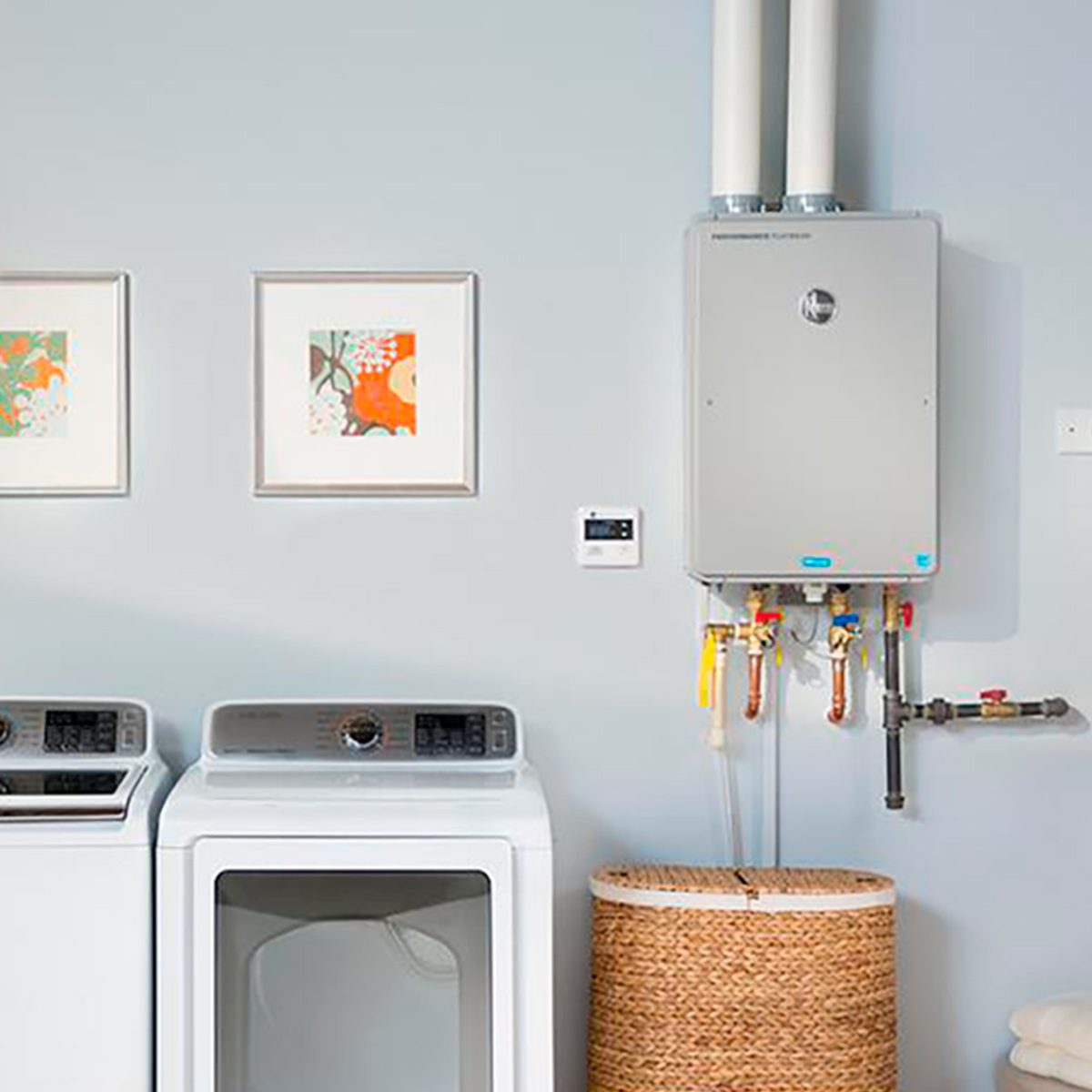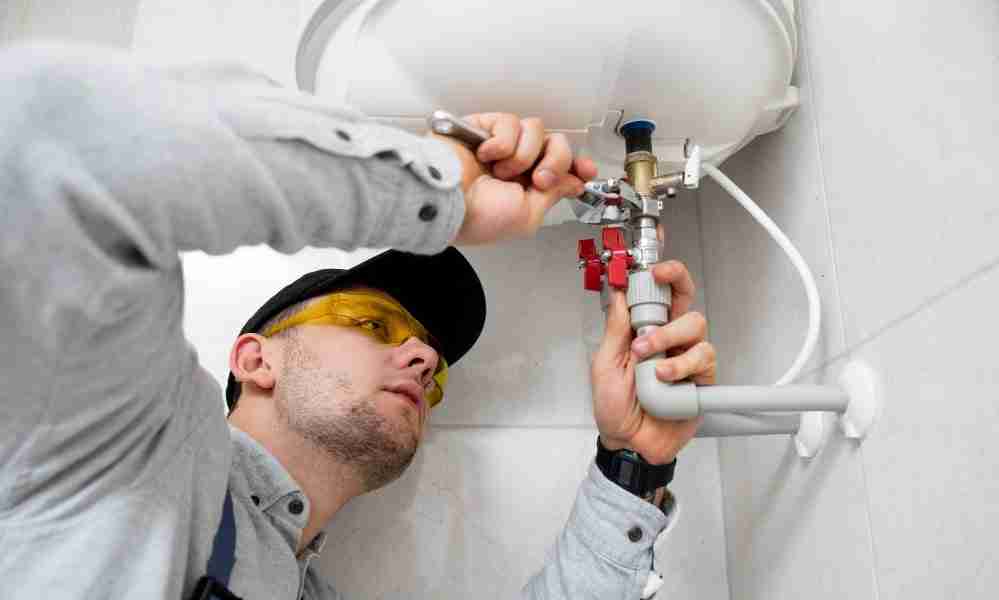Just about every person has got their private ideas with regards to Pros and Cons of Tankless Water Heater.

In a world where ease and effectiveness reign supreme, it's not a surprise that home owners are frequently on the lookout for smarter means to manage their home's power consumption and convenience. One innovation that has actually progressively gotten popularity is the tankless hot water heater. But what exactly makes these systems stand apart from the conventional tank-based models most of us matured with? Let's dive in and explore the advantages of tankless hot water heater, aiding you decide if it's time to make the switch in your home.
Introduction
Picture this: you step into the shower after a long day, expecting a calming waterfall of warm water, just to be greeted by icy droplets because the last person utilized all of it up. Sound familiar? Standard water heaters save a set quantity of hot water, suggesting you go to the mercy of that tank's supply. Tankless systems, on the other hand, heat water on demand. Say goodbye to running out mid-shower, say goodbye to fumbling with routines simply to guarantee hot water is offered.
Recognizing Tankless Water Heaters
What Are Tankless Hot Water Heater?
Tankless hot water heater, in some cases referred to as on-demand or immediate hot water heater, give hot water just as it's needed. As opposed to keeping gallons of pre-heated water, these devices kick into action the moment you switch on the faucet. Water passes through a warm exchanger, heating up in real-time, suggesting you get a continuous circulation of warm water without the demand for a huge container resting idly by.
Exactly how Do They Differ from Traditional Solutions?
Conventional heating units hold a storage tank of hot water, utilizing power to keep that tank at a consistent temperature. Tankless units eliminate the standing supply, minimizing thrown away power and the bulky impact of a big cylinder. Essentially, you're upgrading from a "accumulation" mindset to a "made-to-order" technique.
Common Kinds Of Tankless Devices
Tankless hot water heater normally are available in 2 ranges: gas and electrical. Gas versions tend to deliver higher flow rates, ideal for larger homes, while electrical versions usually offer smaller homes and are generally less complicated to install. Additionally, some systems are designed for point-of-use (serving one component) while others can take care of the whole home's hot water needs.
Trick Benefits of Tankless Hot Water Heater
Energy Efficiency and Cost Savings
Say goodbye to heating up a giant tank's well worth of water and keeping it warm all the time. Tankless heating units reduce standby power losses, which can reduce energy expenses. While the initial price may be higher, the long-lasting cost savings frequently warrant the investment.
3. Space-Saving Design
If your home is short on storage, removing the cumbersome container maximizes important space. Tankless systems are portable and can usually be installed on wall surfaces, concealed in edges, or set up in limited utility wardrobes without grabbing all of the entire space.
4. Longer Life-span
A properly maintained tankless hot water heater can outlive its tank-based cousin. Conventional tanks could last 10-15 years, while tankless designs can keep downing along for twenty years or more, making them a strong investment over time.
1. Countless Hot Water Supply
Ever before had to set up showers so everybody obtains their fair share of warm water? With tankless, that becomes a distant memory. As long as the heating unit's flow capacity isn't gone beyond, you can take back-to-back showers without developing into a popsicle.
5. Improved Water Top Quality
Storing water in a tank can in some cases result in sediment accumulation or a slightly "off" taste. With tankless systems, fresh water is heated on the spot, reducing the chances of debris buildup and possibly supplying cleaner-tasting water.
Factors to consider Before Switching
Though the benefits are engaging, it's a good idea to think about a few variables before fully committing.
Reviewing Your Home's Water Use Patterns
If your household simultaneously makes use of several components with high warm water need, see to it the system's flow price satisfies your needs. Recognizing your usage patterns aids you choose the best dimension and kind of tankless heater.
Upkeep and Treatment Tips
Tankless systems are fairly reduced maintenance, yet they aren't set-it-and-forget-it home appliances.
Normal Cleansing and Descaling
Hard water minerals can develop in the heat exchanger, affecting performance. Regular descaling (usually recommended every year) maintains the unit running at peak performance.
Yearly Specialist Examinations
A yearly checkup from a professional ensures minor issues are captured early. They'll evaluate the system's efficiency, try to find leaks, and assist maintain optimum effectiveness.
Preliminary Investment Costs
Tankless heating units usually feature a higher ahead of time price tag. In between the device itself and possible setup alterations, the first price may provide you sticker shock. Yet bear in mind to see it as a long-term investment.
Setup Needs
Depending upon your home's infrastructure, you might require extra electrical ability or gas line upgrades. Guarantee you recognize the installation requirements and talk to a specialist to avoid surprises.
Ensuring Appropriate Ventilation
For gas versions, proper air flow is essential to safely expel exhaust gases. Make sure venting systems are tidy and appropriately installed to prevent any kind of possible safety and security threats.
Contrasting Different Brands and Designs
Not all tankless water heaters are created equal.
Looking Into Reliable Suppliers
Seek reliable brands with a background of creating quality units. A reliable supplier typically offers much better customer support and longer service warranties.
Setup: Do It Yourself or Professional?
While some home owners relish taking on tasks themselves, tankless installation might not be the most effective time to break out the tool kit.
Benefits and drawbacks of DIY Installment
A do it yourself install can save cash, yet it includes threats. Inaccurate setup can result in inadequacy or safety worries. If you come in handy and have experience, it may be feasible-- however wage caution.
Reviewing Reviews and Individual Feedback
Individual testimonials and responses from neighbors or good friends who have actually gone tankless can use important understandings. Sometimes, real-life experiences can be more informing than advertising and marketing pamphlets.
When to Call a Professional Plumber
For a lot of, calling a pro makes certain whatever's done correctly. A specialist plumbing technician comprehends neighborhood codes, sizing needs, and venting specifications, lowering the threat of mishaps.
Making best use of Efficiency
You've bought a tankless system-- currently maximize its efficiency.
Ideal Temperature Setups
The majority of people establish their devices between 120-140 F. Changing the temperature level can boost convenience and savings. Experiment to find a sweet spot that doesn't waste power.
Coupling With Low-Flow Fixtures
Intend to extend your system's abilities? Think about setting up low-flow showerheads and faucets. They minimize water usage, allowing your tankless system to deliver a constant stream of warm water without straining.
Ecological Impact
Tankless hot water heater align with greener living goals.
Decreased Carbon Footprint
By using less energy and just home heating water as required, tankless systems can decrease your home's carbon impact, decreasing your ecological impact.
Conserving Natural Resources
Much less energy intake and much less squandered warm water convert right into fewer natural deposits being used, an ecological win-win.
Who Profits A Lot Of from Tankless Heating units?
The beauty of tankless heating systems is that they can suit a selection of families.
Large Households vs. Solitary Occupants
Big family members might enjoy the endless hot water supply, while solitary owners value the power financial savings from not heating an entire tank for simply someone's early morning shower.
House Owners with Restricted Area
If your home is short on square video footage, losing the cumbersome storage tank frees up area for various other basics-- or perhaps simply extra breathing space.
Eco-Conscious Consumers
Going tankless aligns with environmentally friendly worths, ensuring you're not squandering energy or sources.
Future Trends in Tankless Hot Water Heater
The world of home devices is ever-evolving, and tankless water heaters are no exception.
Innovations in Innovation
R&D is constantly enhancing warmth exchangers, making units a lot more reliable and long lasting. Future versions might be even quieter, a lot more portable, and better suited for varying environments.
Smart Home Assimilation
Picture adjusting your water heater's temperature level by means of an app or obtaining upkeep informs on your phone. As smart home technology breakthroughs, we'll see even more connectivity and comfort.
Conclusion
Choosing a tankless hot water heater is more than just updating your home's hot water system; it's buying long-term convenience, energy performance, and a greener lifestyle. By considering your family's water use, being mindful of setup needs, and committing to routine maintenance, you can delight in a constant stream of warm water without the luggage of a large tank. As modern technology develops, you can anticipate also smarter, much more effective tankless services that not just make your life simpler yet also profit the earth.
Why You Should Consider a Tankless Water Heater for Your Home
Energy Efficiency and Cost Savings
Tankless water heaters, also known as on-demand water heaters, heat water only when needed. This means they don't waste energy keeping a tank of water hot constantly. This efficiency translates into substantial cost savings on your monthly energy bills.
Endless Hot Water Supply
One of the significant advantages of tankless water heaters is their ability to provide a continuous supply of hot water. Traditional tank water heaters have a limited capacity and can run out of hot water, especially during peak usage times. In contrast, tankless water heaters can provide an endless stream of hot water, making them ideal for larger families or homes with high water usage.
Space-Saving Design
Tankless water heaters are compact and take up significantly less space compared to traditional tank heaters. They can be installed on walls, under cabinets, or even outside, freeing up valuable space in your home. This makes tankless water heaters a great option for smaller homes or properties with limited space for a traditional water heater.
Longer Lifespan and Lower Maintenance
Tankless water heaters typically have a longer lifespan compared to traditional tank heaters. They can last up to 20 years or more with proper maintenance. Additionally, tankless systems are designed with replaceable parts, which can extend their lifespan further and reduce long-term maintenance costs.
Environmentally Friendly
Reducing energy consumption not only saves you money but also benefits the environment. Tankless water heaters contribute to a smaller carbon footprint by using less energy to heat water. Their energy efficiency and ability to minimize standby heat loss make them an eco-friendly choice for environmentally conscious homeowners.
Customized Temperature Control
Tankless water heaters offer precise temperature control, allowing you to set the desired temperature to meet your specific needs. This level of customization ensures you always have water at the perfect temperature for your comfort and usage requirements.
https://beantownservices.com/blog/consider-tankless-water-heater-for-your-home

We had been shown that article about Pros and Cons of Tankless Water Heater from an acquaintance on another blog. In case you liked our post if you please consider to pass it around. Thank you for going through it.
Source